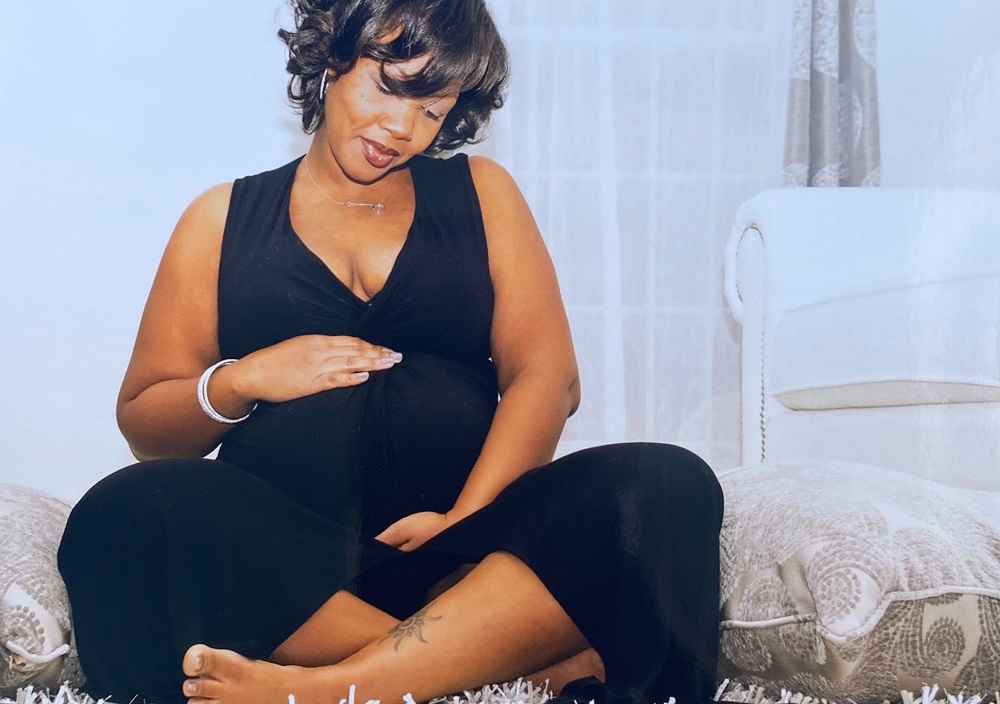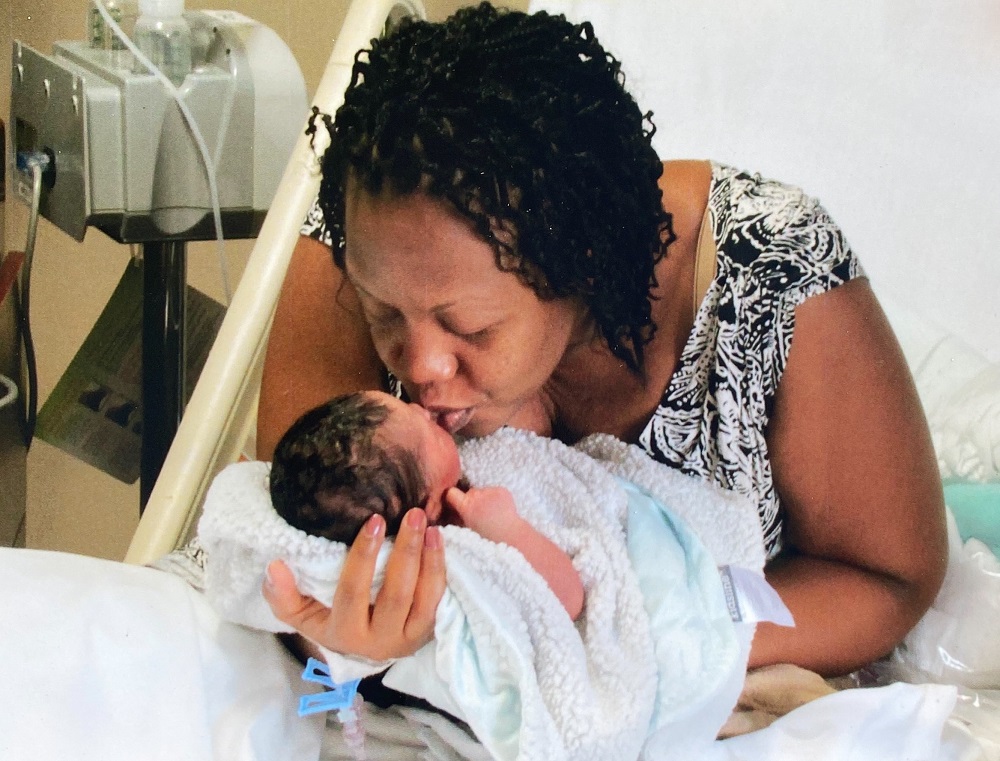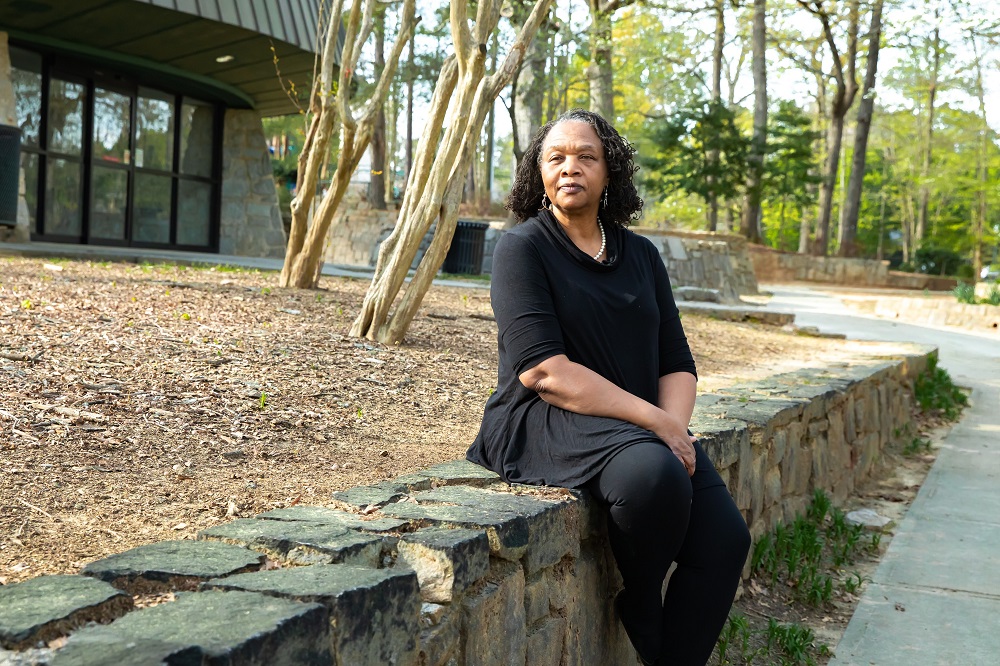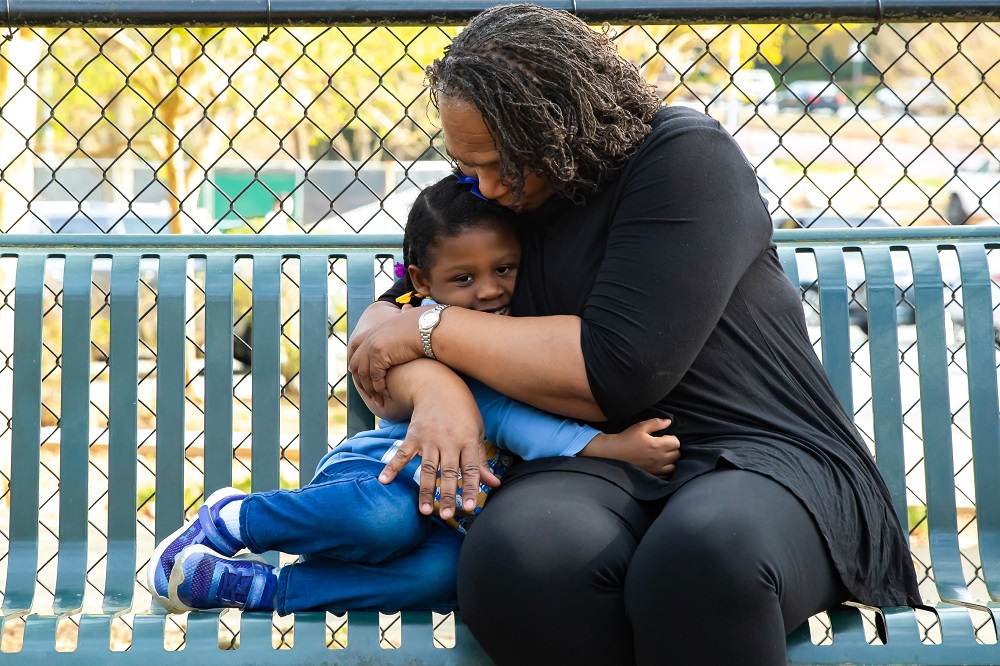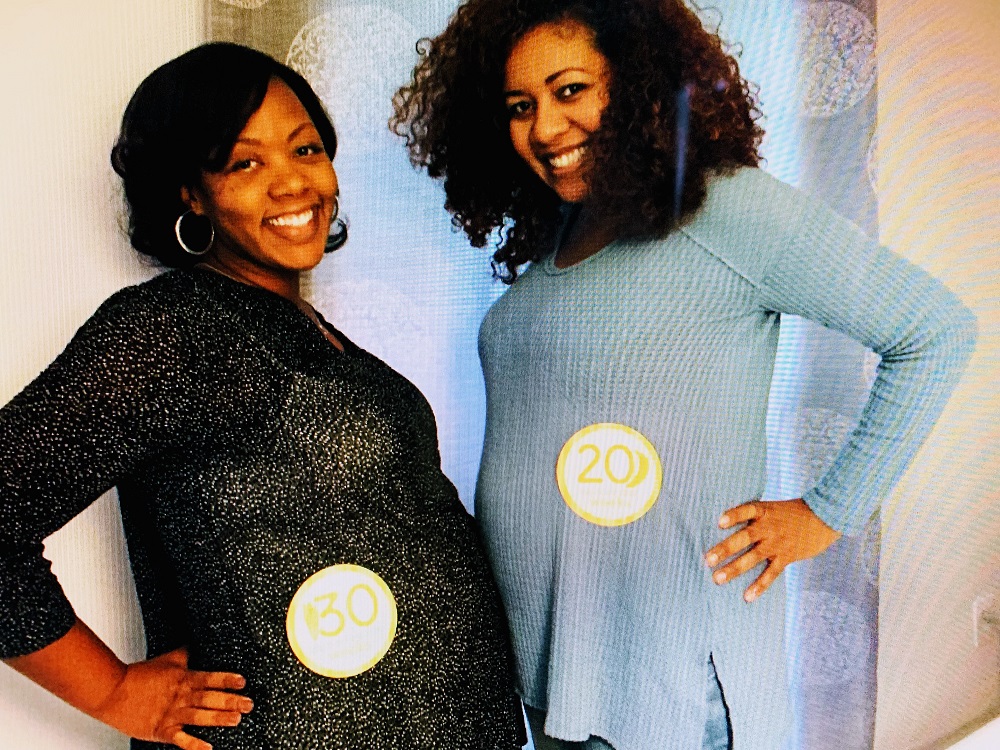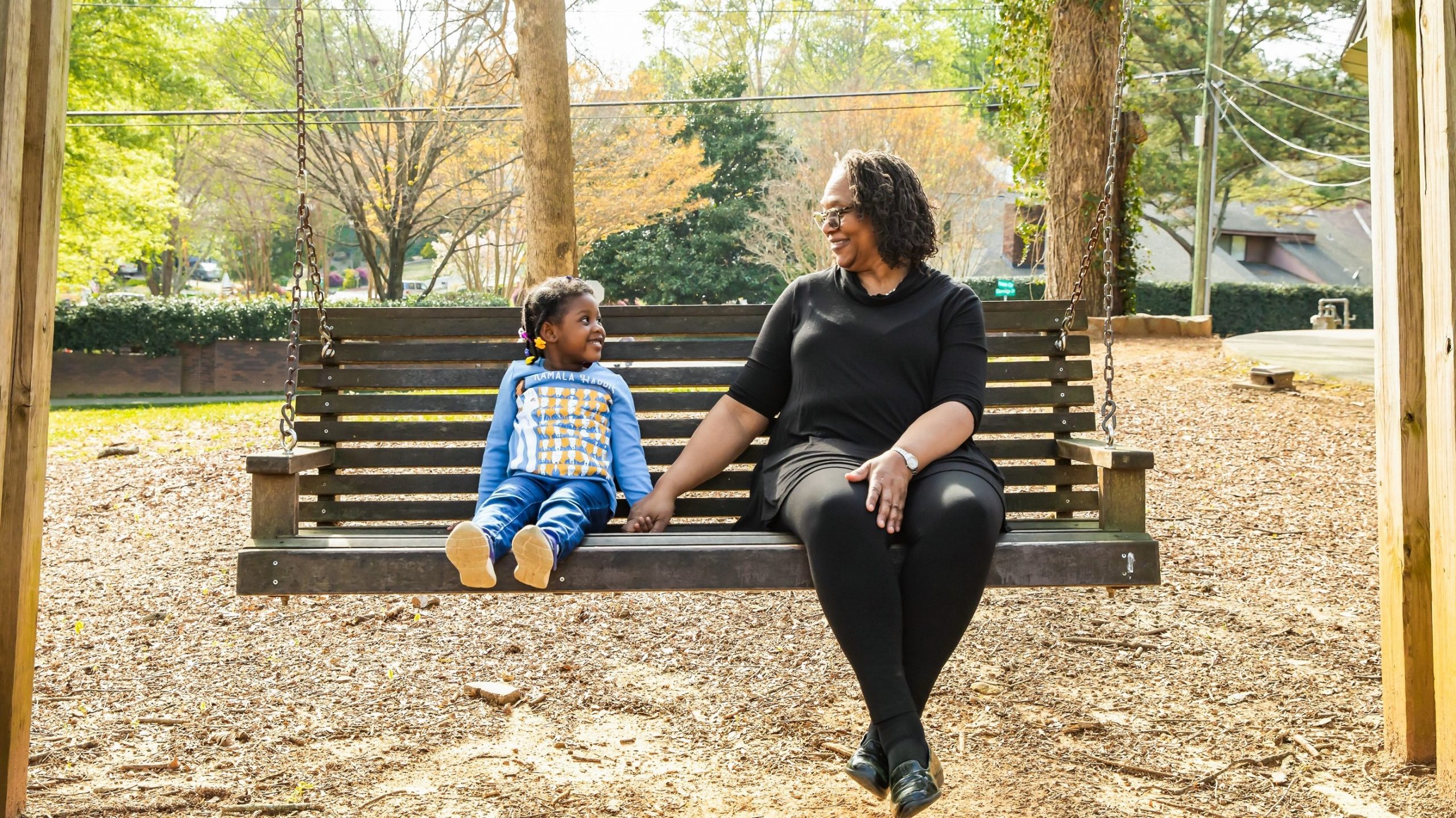
New tools and advocacy support Black pregnant and postpartum mothers to save lives
Shalon Irving was an esteemed epidemiologist at the Centers for Disease Control and Prevention and a lieutenant commander in the U.S. Public Health Service. She had two doctorates and two master’s degrees. She loved to travel. When she became pregnant, she took care of herself and was excited for motherhood.
But three weeks after giving birth, Shalon became one of the disproportionately high number of Black women to die from pregnancy complications in the U.S. She died in 2017 after repeatedly telling her health care providers she didn’t feel well.
“Shalon was very educated. She was totally on top of her health,” says her mother, Wanda Irving. “She kept telling her doctors something was wrong and she was totally ignored. She was seen as an unwed Black mother and given no more credibility than that.”
Shalon had devoted her career to eliminating disparities in health care, a legacy that Wanda Irving is continuing with a nonprofit she founded with her daughter’s best friend, Bianca Pryor. Their organization, Dr Shalon’s Maternal Action Project, is releasing a new app called Believe Her to provide a safe space for Black mothers and their loved ones to connect with a peer support network.
“Our mission is to increase awareness for the Black maternal health crisis and to develop and promote evidence-based strategies that improve health outcomes for Black mothers, birthing people and their families,” says Pryor, co-director of the nonprofit. Or, as Irving puts it: “We want our women heard, valued, seen and believed.”
Launching at the Black Maternal Health Conference this week, Believe Her is part of a growing movement in advocacy and technology by Black women to support Black mothers, challenge structural racism and save lives.
More than 700 women die from pregnancy complications every year in the U.S., but Black mothers are three times more likely to die than white mothers, according to the CDC. The disparity worsens with age and education. Black women over the age of 30 are four times more likely to die than white women in the same age group. Black women with a college degree are five times more likely to die than their white counterparts.
“Tragically, we know that two-thirds of pregnancy-related deaths are preventable,” says Dr. Wanda Barfield, director of the Division of Reproductive Health at the CDC. “Many deaths stem from missed opportunities to address systemic problems like chronic stress, provider bias and poor access to health care.”
Barfield says Shalon’s story highlights the peril of providers dismissing patient concerns, an experience many Black patients know too well. Soon after childbirth, Shalon had reported swollen limbs, high blood pressure and feeling ill many times to her nurses and doctors. Each time, she was sent home with little intervention until she collapsed. She died at age 36 from complications of high blood pressure.
“Despite the education, general knowledge and opportunities that Shalon had, there was still a struggle in terms of being heard when she had concerns around pregnancy,” says Barfield.
The CDC launched its Hear Her campaign to encourage providers and loved ones to listen to a pregnant woman’s concerns and better understand warning signs. Doing so and acting quickly could help save lives. The campaign helped inspire Believe Her, which helps Black mothers anonymously and privately ask questions and share information — a powerful way to destigmatize struggle and counteract an often dismissive medical culture. The app was built by iRel8, makers of an anonymous peer empowerment platform for mental wellness using multiple Microsoft developer tools.
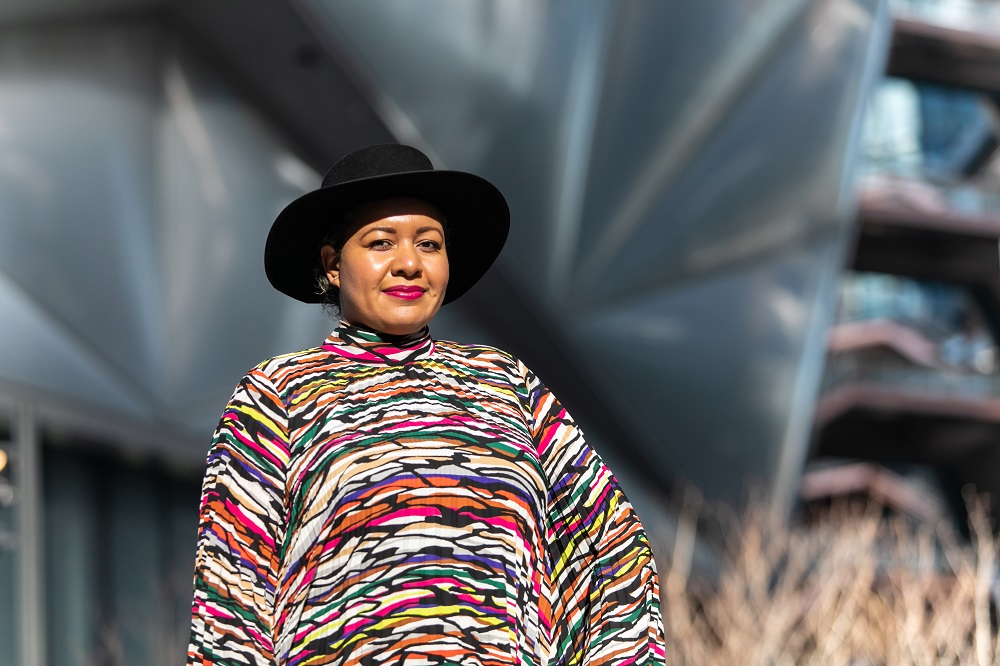
Bianca Pryor, co-director of Dr Shalon’s Maternal Action Project, in New York City (photo by Andrew Kist)
Wanda Irving, chairperson of Dr Shalon’s Maternal Action Project, near Atlanta (photo by DV Photo Video)“It’s building a community,” Rupinder Legha, a psychiatrist committed to antiracism in mental health care, says of Believe Her. “It’s strength in numbers. It’s promoting healing. It’s reversing gaslighting. It’s buffering against structural racism.”
Legha, who has included Shalon’s story in lectures on antiracism in medicine, applauds the app as a solution created by and for people closest to the problem.
“People like Wanda [Irving] and Bianca are breathing life into tragedies like Shalon’s story and doing antiracist work to link people together and validate their truth,” she says. “They are the ones living and breathing this experience, not medical professionals like myself. They are the experts.”
Sarah Verbiest, a longtime leader in social work and maternal health, says sharing stories is crucial during the often isolating, anxious time of pregnancy and postpartum. The anonymous chat rooms in Believe Her on topics like mental health and systemic racism help encourage honesty.
“When women speak their truth, it generates power,” says Verbiest, co-founder of the 4th Trimester Project for postpartum health and co-principal investigator at the Maternal Health Learning & Innovation Center. Both organizations are based at the University of North Carolina (UNC) at Chapel Hill.
Data also helps. A recent study of women undergoing a cesarean section at UNC Medical Center found that Black and Hispanic women received less pain medication and fewer pain assessments and reported higher pain scores than white and Asian women.
“That was a very concrete example of why we need a lot of training and learning about racism,” Verbiest says. “We have to hold people accountable and say, ‘You don’t get paid unless your outcomes are the same for everybody.’”
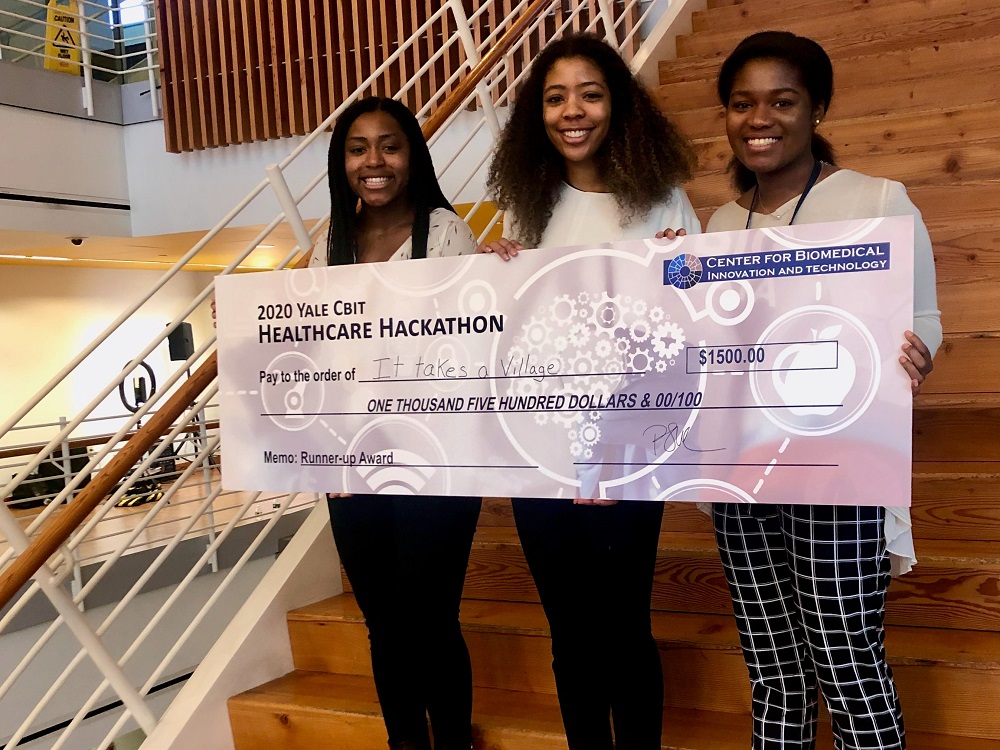
Zoula co-founders Alexandra McCraven, left, Mia Jackson, center, and Chika Ogbejesi hold an award for their app and platform at a Yale hackathon. (Photo courtesy of Zoula)
Irving and Pryor are among a growing number of Black female entrepreneurs creating new maternal health technologies, including Irth, an app for finding prenatal, birthing, postpartum and pediatric reviews from Black and brown women. Mahmee is a maternity and infant care management platform prominently funded by professional tennis player Serena Williams, who almost died after giving birth.
Zoula, an app that connects Black mothers and Black health professionals in local communities, was founded by Yale University students who studied the historical exploitation of Black women in medicine and continuing disparities in maternal mortality today.
“It opened our eyes that it isn’t just about history, but about right now,” says Chika Ogbejesi, chief marketing officer at Zoula. “And realizing that, as Black people, the only way to fix these problems is doing it ourselves.”
But first, Irving had to grieve her enormous loss while raising Shalon’s daughter, Soleil. For two years, Irving sat with her granddaughter by a window near a portrait of Shalon, wishing for her to come home. She now sees Shalon’s energy and determination in Soleil, who is four, loves dance and gymnastics, and asks why her mother “had to go.”
“It breaks my heart because I have no answer for that,” Irving says. “I never imagined my life without my daughter.”
Over the years, she and Pryor channeled their grief into fierce advocacy for equitable maternal health. After forming their nonprofit in 2019, they hosted roundtables with Black mothers who had struggled to be heard during pregnancy and Black grandmothers grieving for daughters who died during or after giving birth.
Irving testified in Congress to support bills addressing the maternal crisis, reintroduced this year as the Black Maternal Health Momnibus Act of 2021. She spoke movingly of Shalon at a TEDMED health conference in a talk called “How the U.S. medical community fails Black mothers.”
Pryor dove into launching the nonprofit, engaging with stakeholders and envisioning the app, on top of being a mom and working a busy job. She had been pregnant with her son at the same time Shalon was pregnant.
“I’m reminded in all this pain of how much I miss my homegirl,” says Pryor, who became friends with Shalon in graduate school at Purdue University. “This is the purpose. This is why I keep doing this. It’s to pour all of that pain into something that will help other mothers and birthing people, so they don’t have to experience it.”
Dr Shalon’s Maternal Action Project is co-hosting a series of virtual events April 11-17, 2021 in honor of Black Maternal Health Week.
Learn more about the Black Maternal Health Conference on April 16-17, 2021 and its organizers, Black Mamas Matter Alliance. Learn more about iRel8 and its work with Microsoft.
Lead image: Soleil Irving, left, and Wanda Irving (photo by DV Photo Video)

